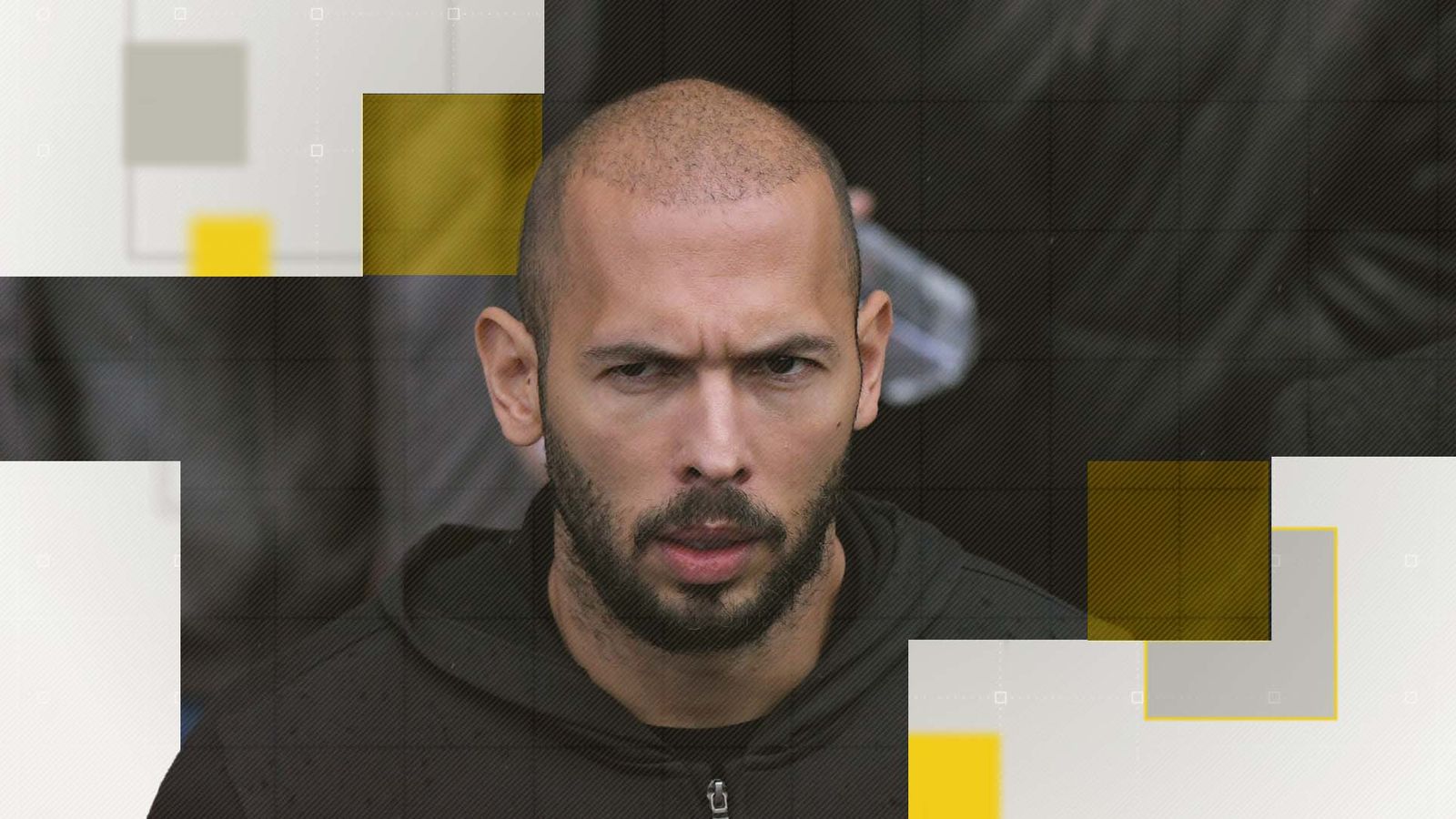The intersection of social media and personal beliefs can often lead to heated debates, especially when controversial figures like Andrew Tate are involved. Known for his polarizing views and often provocative statements, Tate's presence on Twitter has become a focal point for discussions surrounding racism and accountability. As users navigate the complexities of online discourse, the implications of Tate's comments bring to light the broader issues of racism and freedom of speech.
In recent years, Andrew Tate has gained notoriety not only for his success as a businessman and former kickboxer but also for his incendiary remarks on various platforms. Twitter, in particular, has been a stage for his unfiltered opinions, leading many to question the impact of his statements on societal perceptions of race and discrimination. The question arises: can one separate the individual from their words, especially when those words perpetuate harmful stereotypes?
As we delve deeper into the world of Andrew Tate and his controversial Twitter activity, it becomes essential to understand the implications of his comments. The conversation surrounding "Andrew Tate racist Twitter" is not just about the man himself but also reflects larger societal issues that need to be addressed. With this in mind, we aim to explore Tate's background, his online presence, and the ramifications of his statements.
- Unraveling The Height Mystery How Tall Is Tommy Flanagan
- Brittney Griner A Journey From Birth To Stardom
Who is Andrew Tate?
Andrew Tate is a multifaceted personality, known for his ventures in business, sports, and social media. He first gained fame as a professional kickboxer, where he achieved considerable success and earned multiple world championships. Following his athletic career, Tate transitioned into the business world, where he has been involved in various entrepreneurial ventures.
Andrew Tate's Biography
| Detail | Information |
|---|---|
| Full Name | Emory Andrew Tate III |
| Date of Birth | December 1, 1987 |
| Place of Birth | Washington, D.C., USA |
| Profession | Businessman, former kickboxer, social media influencer |
| Nationality | American |
| Known For | Controversial statements, online courses |
| Social Media Presence | Twitter, Instagram, YouTube |
What Controversial Statements Has Andrew Tate Made on Twitter?
Andrew Tate's Twitter feed is filled with a variety of statements that have sparked outrage and debate. Some of his comments have been labeled as racist, misogynistic, and insensitive. His tendency to make sweeping generalizations about different races and cultures has drawn criticism from users around the globe.
How Has the Public Responded to Andrew Tate's Comments?
The public's reaction to Andrew Tate's remarks has been largely negative, with many users calling for accountability and consequences for his behavior. Various social media users and organizations have condemned his statements, arguing that they contribute to a culture of racism and bigotry. The backlash has led to significant discussions about the responsibilities of influencers and public figures in today's digital landscape.
What Are the Implications of Andrew Tate's Racist Tweets?
The implications of Andrew Tate's racist Twitter comments extend beyond just individual reactions; they reflect societal attitudes towards race and discrimination. His statements can perpetuate harmful stereotypes and normalize racist ideologies, which is particularly concerning in an age where social media significantly influences public opinion.
Could Andrew Tate's Comments Lead to Consequences?
As the conversation around Andrew Tate's comments continues to evolve, many speculate about potential consequences for his actions. This could range from social media bans to legal repercussions, as some users advocate for stricter regulations on hate speech and discrimination online. The ongoing debate raises important questions about freedom of speech versus accountability for harmful rhetoric.
How Can We Address Racism in Social Media?
Addressing racism in social media requires a multi-faceted approach. Here are a few steps that can be taken to mitigate the impact of harmful comments:
- Promote Digital Literacy: Educating users about the implications of online discourse and encouraging critical thinking can help combat the spread of misinformation and hate speech.
- Encourage Reporting: Social media platforms should have robust systems in place for reporting hate speech and racist comments, ensuring that users feel empowered to take action.
- Support Positive Voices: Amplifying voices that promote inclusivity and diversity can help shift the narrative away from harmful rhetoric.
- Engage in Open Dialogues: Creating spaces for discussions about race and discrimination can foster understanding and empathy among users.
What’s Next for Andrew Tate?
As the controversy surrounding Andrew Tate continues to unfold, many are left wondering what the future holds for him. Will he amend his ways, or will he remain steadfast in his beliefs? The evolving nature of social media and public opinion will likely play a significant role in shaping the trajectory of his career and online presence.
In conclusion, the conversation surrounding "Andrew Tate racist Twitter" is a reflection of larger societal issues that merit attention. As we navigate the complexities of online discourse, it is essential to hold public figures accountable for their words and strive for a more inclusive digital landscape. The implications of Tate's comments extend far beyond his individual actions, inviting us all to engage in meaningful discussions about race, responsibility, and the power of social media.


